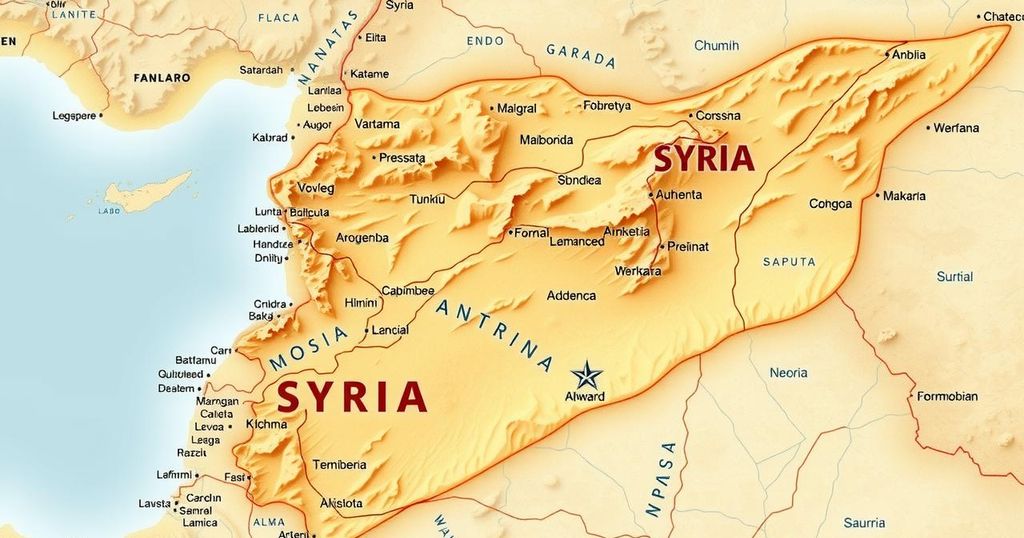Syria’s Historic Participation in EU Donor Conference Marks New Chapter

Syria’s interim leaders will attend a donor conference in Brussels for the first time, seeking international support after Assad’s ousting. The country faces enormous rebuilding costs and ongoing security issues amid western sanctions. The EU emphasizes a peaceful transition while cautiously easing some sanctions as aid is urgently needed for recovery.
Syria is set to attend a donor conference in Brussels for the first time, marking a significant step for the country’s new leadership under interim President Ahmad Al-Sharaa. The conference, organized by the European Union, aims to provide support for Syria’s peaceful transition following the ousting of President Bashar Assad. Syrian Foreign Minister Asaad Hassan al-Shibani will represent Syria at this crucial gathering, which is expected to attract international attention and assistance.
The conference arrives at a critical juncture as Syria’s new government works to reclaim control over territories fragmented during a prolonged civil war that lasted nearly 14 years. It has been estimated that the cost to rebuild the nation could range from $250 billion to $400 billion. However, the recovery efforts have been complicated by stringent Western sanctions that remain largely in place.
The interim administration seeks international legitimacy through the conference, with hopes that sanctions may be eased and urgent humanitarian assistance can be secured. Security remains a pressing issue, as recent violence between government forces and loyalists of the former regime highlights ongoing tensions. A recent ambush and subsequent sectarian clashes raised alarms about stability in the region.
In light of these challenges, the EU has expressed its commitment to respecting Syria’s sovereignty while supporting a peaceful and inclusive transition. Although it has eased some sanctions in the energy and financial sectors, the bloc maintains a cautious stance, ready to reimpose sanctions if necessary. Under the new Islamist regime, concerns among minority groups about safety and governance persist as the country struggles with governance issues.
Syria faces immense humanitarian and economic challenges, with reports indicating chronic shortages of electricity and water, alongside soaring unemployment rates. Since the onset of the conflict, millions have been displaced, with many individuals unable to secure basic necessities. Despite these difficulties, U.N. humanitarian chief Tom Fletcher has expressed optimism about operations in the country, noting improved interactions with the new authorities, including the facilitation of open border crossings.
The primary objective of the conference is to secure aid pledges while also addressing Syria’s broader economic challenges. Restoration of infrastructure, health, and education systems is imperative for socioeconomic recovery, hence the emphasis on creating job opportunities and financial support for local citizens.
Overall, the donor conference serves both as a critical meeting point for international assistance and as a litmus test for the new leadership’s commitment to unity and stabilization within Syria.
The upcoming donor conference in Brussels represents a pivotal moment for Syria and its interim government as it navigates the aftermath of a lengthy civil conflict. With hopes of securing international legitimacy and financial support, the leadership aims to rebuild a fractured nation while grappling with ongoing security issues and humanitarian crises. The cooperative approach from the U.N. reflects cautious optimism, yet the situation remains fluid, demanding ongoing attention and support from the global community to foster stability and recovery in Syria.
Original Source: apnews.com








